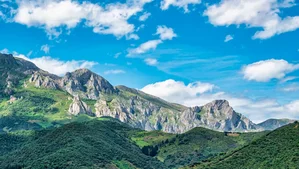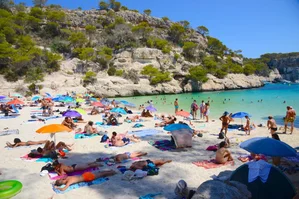Camino de Santiago Hosts Sustainability Meeting for Tourism and Pilgrim Accommodations

In a significant step towards enhancing the sustainability and inclusivity of the historic Camino de Santiago, a recent gathering brought together experts in tourism, sustainable development, and pilgrim accommodations. The event, held on October 26, 2024, was a pivotal moment in the ongoing efforts to ensure that this ancient pilgrimage route remains a viable and responsible tourist destination.
Focus on Sustainability and Inclusivity
The meeting emphasized the importance of sustainability, aligning with the United Nations' Sustainable Development Goals (SDGs). Experts discussed various strategies to reduce the environmental impact of the Camino de Santiago, which attracts hundreds of thousands of pilgrims each year. This includes implementing eco-friendly practices in albergues (pilgrim hostels), improving waste management, and promoting energy-efficient solutions.
Decálogo del Albergue: A Guide for Sustainable Hostels
A key outcome of the meeting was the introduction of the "Decálogo del Albergue," a comprehensive guide that provides practical recommendations for albergue managers. This guide includes measures such as adapting spaces to accommodate individuals with reduced mobility, implementing recycling programs, and using renewable energy sources. The Decálogo aims to standardize sustainable practices across all albergues along the Camino de Santiago, ensuring a more inclusive and environmentally friendly experience for pilgrims.
Expert Contributions and Collaborations
The event featured presentations from renowned experts in sustainable tourism and pilgrimage management. These experts shared best practices and innovative solutions that have been successfully implemented in other tourist destinations. The meeting also fostered collaborations between local authorities, albergue owners, and environmental organizations, all of whom are committed to preserving the cultural and natural heritage of the Camino de Santiago.
Impact on Local Communities
The initiative is expected to have a positive impact on local communities along the pilgrimage route. By promoting sustainable tourism, the Camino de Santiago can continue to support local economies while minimizing its environmental footprint. This approach also enhances the overall experience for pilgrims, who can now contribute to the preservation of this historic route while enjoying their journey.
Future Plans and Initiatives
Following the success of this meeting, organizers are planning further initiatives to reinforce the sustainability of the Camino de Santiago. These include workshops for albergue staff, community engagement programs, and the development of sustainable tourism policies. The goal is to ensure that the Camino de Santiago remains a vibrant and responsible tourist destination for generations to come.
This significant step forward in sustainability and inclusivity underscores the commitment of the Camino de Santiago community to preserving this beloved pilgrimage route while promoting a more sustainable future.
Related Stories

Northern Spain Named Best Global Destination for a Road Trip
Northern Spain wins title of best global road trip destination by Travelbook.de, celebrated for its stunning landscapes, rich culture, and scenic routes.

Discover the Best Cycling and Mountain Biking Routes in Cantabria
Explore the stunning cycling and mountain biking routes of Cantabria, Spain. From coastal paths to challenging mountain trails, discover routes for all skill levels amidst breathtaking landscapes.

Train Derailment Between Atocha and Chamartín Affects Thousands of Commuters
Train derailment in Madrid tunnel disrupts 13,700 commuters, with ongoing efforts to restore service between Atocha and Chamartín stations.

Normality Restored in Spanish Rail Network After Disruptions
Spanish rail services to resume normal operations on Oct 21 after disruptions, ADIF confirms, marking an end to weeks of travel chaos for commuters and tourists.

Illegal Tourist Rentals Surpass Legal Ones in Menorca, Raising Alarms
Illegal tourist rentals in Menorca now outnumber legal ones, posing threats to the island's sustainability and living costs, with calls for urgent regulatory action.